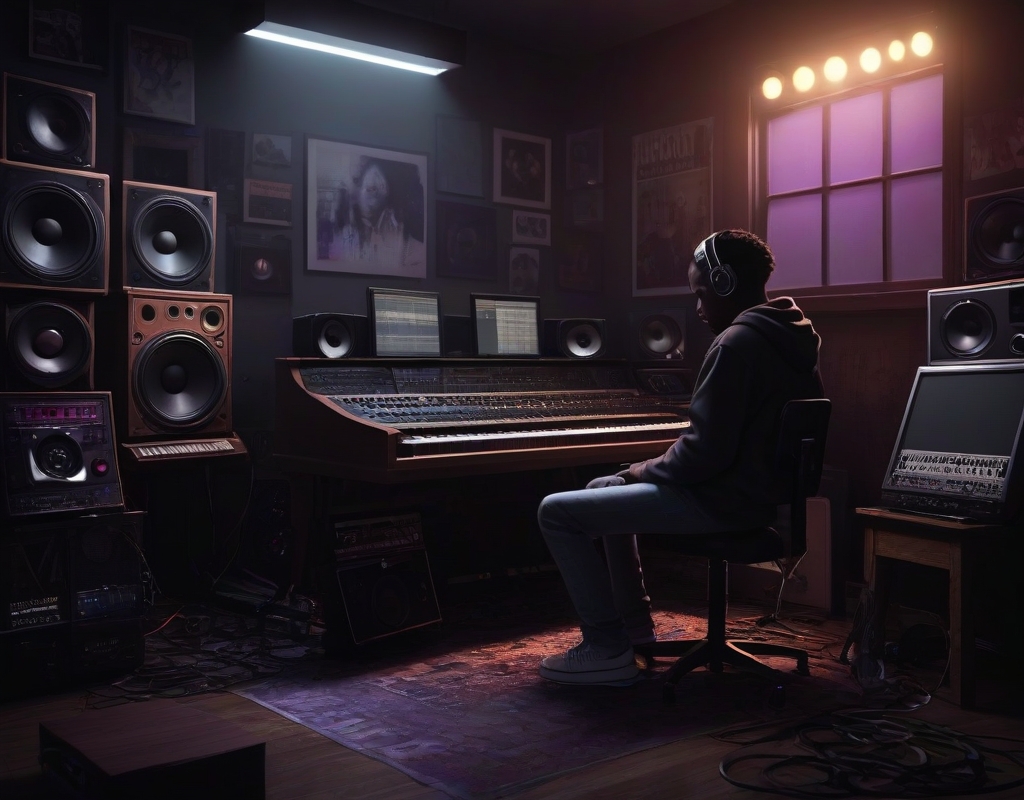In the making of modern music, few figures have been as influential as Metro Boomin, a Grammy-winning producer celebrated for his collaborations with top-tier artists and a signature sound that frequently tops the charts. However, Leland Tyler Wayne, known professionally as Metro Boomin, is currently enmeshed in a grave legal controversy that could potentially mar his career. He faces a lawsuit filed by Vanessa LeMaistre, who accuses him of sexual battery, claiming he raped her in 2016. This legal challenge tests not only his personal integrity but also shines a harsh light on his professional life.
The alleged incident unfolded in an environment rich with the effervescent spirit typical of 2016’s music scene. During a spring visit to Las Vegas, LeMaistre, who was dealing with the profound grief of losing her son, met Metro Boomin. Their acquaintance rapidly evolved into what appeared to be a trust-based relationship, prompting her to visit his studio in Los Angeles. It was there she noticed his use of codeine, hinting at the widespread issue of substance abuse within the industry.
LeMaistre’s legal filings provide a disturbing account of her visit to Metro Boomin’s studio in September 2016. In an attempt to cope with her grief, she consumed half a Xanax pill and a shot of alcohol, after which she alleges to have lost consciousness. Upon awakening, she claims to have found Metro Boomin sexually assaulting her—a serious accusation that places significant focus on issues of consent and autonomy.
The repercussions of this alleged encounter were severe. LeMaistre soon discovered she was pregnant, believed to be a result of the assault, leading her to terminate the pregnancy in November 2016. This element of her claim highlights the disturbing and often long-lasting impact of sexual assault on a victim’s physical and mental health.
Adding a layer of complexity to the case, LeMaistre argues that Metro Boomin referenced the assault in his music lyrics, particularly in the track “Rap Saved Me”. The lyrics she points out—“She took a Xanny / Then she fainted / I’m from the gutter … ain’t no changing” eerily echo her experience, suggesting a chilling indifference to her trauma.
LeMaistre’s legal action seeks not only justice for the alleged assault but also aims to address the broader implications of such actions within the music industry, demanding unspecified damages for her suffering and punitive measures against Metro Boomin to prevent future misconduct. This case serves as a stark reminder of the need for accountability in spaces where power dynamics often silence the aggrieved parties.
Thus far, Metro Boomin has yet to respond publicly to these charges, creating a palpable tension as fans and industry insiders await his side of the story.
This lawsuit occurs against a backdrop of increasing scrutiny of sexual misconduct within the entertainment sector. Sparked by the #MeToo movement, which gained significant traction in 2017, there has been a renewed focus on calling out and addressing such abuses. This cultural shift has seen several high-profile music industry figures being held accountable, albeit with mixed results, highlighting an ongoing battle between maintaining public favor and ensuring justice.
Experts have not shied away from critiquing the systemic issues this case encapsulates. Dr. Andrea Tompkins, a gender studies professor, remarked on the music industry’s challenges, noting that it “has often placed power and control above the pursuit of justice.” Additionally, Marcus Hill, an industry veteran, emphasized the necessity of breaking the “culture of silence.”
As the legal proceedings evolve, they prompt the music industry to reassess how it handles accusations of misconduct. Advocates are calling for better protections for artists and fans, emphasizing that talent should never be nurtured in an environment riddled with fear and exploitation.
Metro Boomin’s lawsuit not only threatens to alter his personal and professional reputation significantly but also places this case as a potential turning point in discussions about equity, justice, and reform both within the music industry and in wider social contexts.
The unfolding of these events will undoubtedly leave an indelible mark on how allegations of this nature are addressed in the future. It calls for stakeholders within the music industry and beyond to remain engaged and proactive in seeking justice and reinforcing measures that protect individuals from abuse. By ensuring transparency and fairness, the industry can hope to support a culture where creativity is not overshadowed by misconduct, and all members can engage in the artistic process without fear or reservation.




